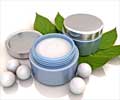
Senior author Dr. Amber Cooper, an assistant professor of obstetrics and gynecology, said, "Chemicals linked to earlier menopause may lead to an early decline in ovarian function, and our results suggest we as a society should be concerned."
Data examined from 1,442 menopausal women was nationally representative of a population of almost 9 million menopausal women. Scientists used information collected from 1999-2008 as part of the Centers for Disease Control and Prevention’s National Health and Nutrition Examination Survey. The survey included 31,575 people.
None of the menopausal women included in the data used estrogen-replacement therapies or had ovary-removal surgery. All had been tested for levels of endocrine-disrupting chemicals.
Researchers said that they analyzed the women’s blood and urine samples for exposures to 111 mostly man-made chemicals, including known reproductive toxins and those that take more than a year to break down. “These chemicals included phthalates, which are found in plastics, common household items, pharmaceuticals, and personal care products; phytoestrogens, plant-derived estrogens; and dioxins/furans, industrial combustion byproducts,” they added.
To avoid chemical exposure, scientists recommend microwaving food in glass or paper containers rather than in plastic. According to them, it is also important to study ingredients in cosmetics, personal care products, and food packaging that are used daily.
Advertisement
Advertisement













